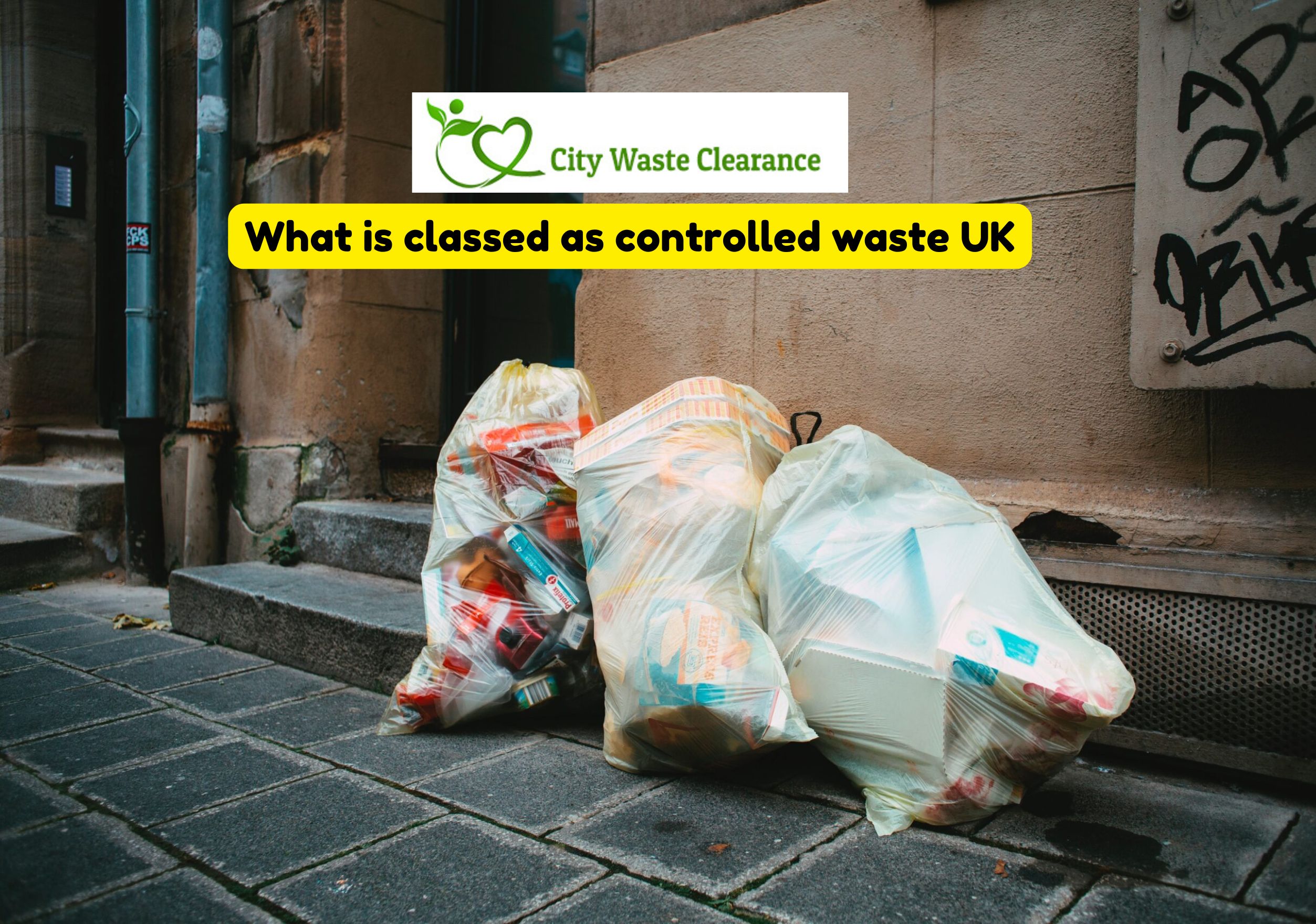What is classed as controlled waste UK? Controlled waste in the UK includes household, industrial, and commercial waste. This waste type needs specific handling and disposal methods.
Controlled waste management is crucial for health and the environment. The UK classifies waste to ensure proper disposal practices. Household waste includes everyday items like food scraps and packaging. Industrial waste comes from factories and manufacturing. Commercial waste originates from businesses such as offices and shops.
Proper handling of these wastes prevents pollution and health risks. Authorities oversee waste disposal to ensure compliance with regulations. Following these rules helps protect communities and nature. Disposal companies often provide services to manage controlled waste efficiently. Understanding controlled waste categories aids in better waste management and compliance.
Introduction To Controlled Waste
Controlled waste includes household, industrial, and commercial waste. It must be managed and disposed of correctly. This type of waste can be harmful to the environment and health. Proper disposal helps prevent pollution and health risks. Examples include everyday trash, factory waste, and office waste. Special rules apply to control and manage it.
Classifying waste helps in its proper management. It ensures the right disposal methods are used. This reduces harm to the environment and people. Classified waste can be recycled or treated safely. Misclassification can lead to legal issues and fines. Authorities monitor and regulate controlled waste strictly.
Types Of Controlled Waste
Household waste includes everyday items like food scraps, packaging, and old clothes. This waste often comes from homes and apartments. Garden waste like grass cuttings and leaves also falls under this category. Electrical items such as old gadgets or broken appliances count too. Proper disposal is important to keep the environment clean.
Commercial waste comes from businesses and offices. It includes paper, cardboard, plastic, and food waste from restaurants. Packaging materials and unused products are also part of commercial waste. Managing this waste properly helps keep business areas neat and tidy.
Industrial waste is produced by factories and manufacturing plants. It includes scrap metal, chemicals, and leftover materials from production processes. Proper handling of industrial waste is crucial to avoid pollution. Hazardous waste like toxic chemicals requires special disposal methods.
Regulations And Legislation
Controlled waste in the UK includes household, industrial, and commercial waste. Hazardous materials like asbestos and chemicals also fall under this category. Proper disposal is crucial to comply with environmental regulations.
Key Legal Frameworks
The Environmental Protection Act 1990 defines controlled waste. It includes household, industrial, and commercial waste. Waste carriers need a license. The law requires proper disposal methods. Failing to comply can lead to fines. The Waste (England and Wales) Regulations 2011 sets additional rules. It promotes recycling and waste reduction. Businesses must follow a waste hierarchy. The hierarchy prioritizes prevention, reuse, recycling, and energy recovery.
Compliance Requirements
Businesses must keep records of waste. These records include transfer notes and consignment notes. Waste must be stored safely. Containers should prevent leaks and spills. Labels on containers must be clear. Hazardous waste requires special handling. Employees need training on waste handling. Inspections ensure compliance with rules. Non-compliance can result in penalties.
Management And Disposal
Controlled waste in the UK includes household, industrial, and commercial waste. Local authorities are responsible for collecting household waste. Private companies often handle industrial and commercial waste. Proper waste collection methods are essential for environmental safety.
Safe disposal practices ensure that controlled waste does not harm the environment. Recycling is a key practice for reducing waste. Landfills and incineration are common methods for disposing of non-recyclable waste. Special facilities handle hazardous waste to prevent contamination.
Impact On Environment And Health
Controlled waste harms our planet. It includes toxic chemicals and pollutants. These substances can contaminate soil and water sources. Animals and plants suffer as a result. Air quality can also decline. Pollutants spread through the air. This affects entire ecosystems.
Exposure to controlled waste can be dangerous. People can get sick from toxic substances. Issues like respiratory problems and skin irritations are common. Long-term exposure can cause serious illnesses. Children and elderly are at higher risk. Proper disposal of waste is crucial. It protects public health and well-being.
Role Of Government And Local Authorities
The government creates rules for controlled waste. These rules help keep people and the environment safe. They classify waste into different types. Each type needs special handling. The government also sets fines for breaking these rules. They work with local authorities to enforce the laws.
Local authorities manage waste collection and disposal. They must follow the government’s rules. They educate the public about proper waste disposal. Local councils also handle permits for waste carriers. They inspect waste sites to ensure they follow safety standards. Authorities report any illegal waste activities.
Frequently Asked Questions
What Is Controlled Waste In The UK?
Controlled waste includes household, industrial, and commercial waste. It is regulated to protect human health and the environment.
How Is Controlled Waste Managed?
Controlled waste is managed through collection, treatment, and disposal. Proper management prevents harm to health and the environment.
Who Regulates Controlled Waste In The Uk?
The Environment Agency regulates controlled waste. They ensure waste is managed in compliance with laws and guidelines.
Conclusion
Understanding controlled waste in the UK is essential for proper disposal. It includes household, commercial, and industrial waste. Correct handling prevents environmental harm. Always follow local guidelines for waste management. This ensures a cleaner and safer environment for everyone. Stay informed and responsible with your waste disposal practices.


